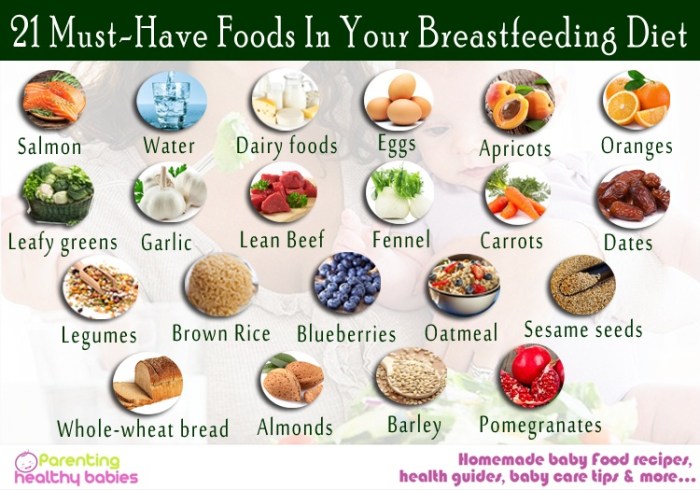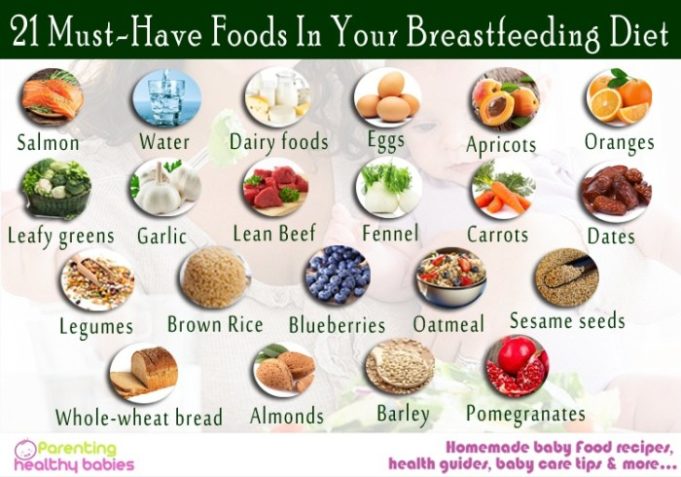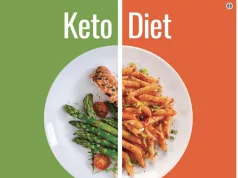Can you diet while breastfeeding? It’s a question many new mothers grapple with, balancing the desire for a healthy weight with the critical need to nourish their babies. Breastfeeding is a demanding process, requiring ample energy and nutrients to produce enough milk for a growing infant. This article delves into the intricacies of breastfeeding and weight management, exploring the potential risks and benefits of dieting while providing practical advice for safe and sustainable weight loss.
Understanding the nutritional needs of breastfeeding mothers is paramount. A balanced diet rich in essential vitamins, minerals, and calories is crucial for supporting milk production and ensuring the infant’s healthy development. Dieting during this period can potentially compromise milk supply and impact the infant’s nutritional intake, highlighting the importance of consulting a healthcare professional before embarking on any weight loss journey.
The Importance of Nutrition During Breastfeeding
Breastfeeding is a beautiful and natural way to nourish your baby, but it also places a significant demand on your body. It’s essential to prioritize your own nutrition during this time to ensure you can provide your baby with the best possible start in life.
Nutritional Needs of Breastfeeding Mothers
Your body requires extra calories and nutrients to produce breast milk. This is because breast milk is packed with essential vitamins, minerals, and fats that support your baby’s growth and development. The recommended daily calorie intake for breastfeeding mothers is approximately 500 calories more than their pre-pregnancy needs. This translates to about 2,500 calories per day for most women. However, individual needs can vary based on factors like age, activity level, and milk production.
The Role of a Balanced Diet in Supporting Milk Production
A balanced diet plays a crucial role in supporting milk production. It provides your body with the building blocks it needs to create breast milk. Here are some essential nutrients to focus on:
- Calories: Adequate calorie intake is crucial to sustain milk production. Choose nutrient-rich foods over empty calories.
- Protein: Protein is essential for milk production, tissue repair, and overall health. Good sources include lean meats, poultry, fish, beans, lentils, and dairy products.
- Fats: Healthy fats are important for brain development and energy production. Include sources like avocados, nuts, seeds, and fatty fish.
- Vitamins and Minerals: Vitamins and minerals play vital roles in supporting both your and your baby’s health. Focus on consuming a variety of fruits, vegetables, whole grains, and dairy products. Supplementation may be necessary in some cases.
Tips for Ensuring Adequate Calorie and Nutrient Intake
Here are some practical tips to help you meet your nutritional needs while breastfeeding:
- Eat frequent, small meals: This can help prevent feelings of fullness and make it easier to consume enough calories throughout the day.
- Include nutrient-rich snacks: Snacks like yogurt, fruits, vegetables, nuts, and seeds can provide quick energy and essential nutrients.
- Stay hydrated: Drink plenty of water throughout the day to support milk production and prevent dehydration.
- Listen to your body: Pay attention to your hunger cues and eat when you feel hungry. Avoid restrictive diets or skipping meals.
- Seek professional advice: Consult with your doctor or a registered dietitian to develop a personalized nutrition plan that meets your specific needs.
The Impact of Dieting on Breastfeeding
Dieting while breastfeeding can pose potential risks to both the mother and the infant. While it is important to maintain a healthy weight, drastic calorie restriction or restrictive diets can have adverse effects on milk supply, nutrient content, and infant health.
Effects of Calorie Restriction on Milk Supply
Restricting calories can significantly impact milk production. The body requires adequate energy to produce breast milk, and when calorie intake is insufficient, the body may prioritize other functions over milk production. This can lead to a decrease in milk supply, potentially causing insufficient milk for the infant.
Studies have shown that mothers who severely restrict their calorie intake during breastfeeding often experience a reduction in milk volume.
Potential Impact of Dietary Changes on Infant Health
Dietary changes during breastfeeding can affect the composition and nutritional value of breast milk.
- Nutrient Deficiencies: Restrictive diets may lead to nutrient deficiencies in the mother, which can be transferred to the infant through breast milk. This can result in growth problems, developmental delays, and other health issues.
- Exposure to Harmful Substances: Certain diets may include foods or supplements that contain substances potentially harmful to infants. For example, some weight-loss supplements may contain ingredients that can interfere with infant growth and development.
- Allergic Reactions: Introducing new foods into the mother’s diet can trigger allergic reactions in the infant. Breastfeeding mothers should introduce new foods gradually and monitor their infant for any signs of allergy.
Safe and Healthy Weight Management While Breastfeeding
Losing weight after childbirth is a common goal for many mothers, but it’s crucial to prioritize your health and the well-being of your baby. While breastfeeding, your body needs extra energy to produce milk and recover from labor and delivery. It’s important to approach weight loss in a safe and sustainable way, ensuring you meet your nutritional needs and support your breastfeeding journey.
Guidelines for Safe and Sustainable Weight Loss
Safe and sustainable weight loss during breastfeeding involves a gradual approach that prioritizes your health and the needs of your baby. Avoid crash diets or extreme calorie restriction, as these can negatively impact your milk supply and overall health. Focus on making gradual, healthy changes to your diet and lifestyle.
- Consult with a healthcare professional: Before starting any diet or exercise program, it’s essential to talk to your doctor or a registered dietitian. They can assess your individual needs and provide personalized guidance based on your health status and breastfeeding goals.
- Aim for gradual weight loss: A safe and sustainable weight loss rate during breastfeeding is 1-2 pounds per week. This gradual approach allows your body to adjust and minimizes the risk of nutritional deficiencies or impacting your milk supply.
- Focus on nutrient-dense foods: Prioritize foods rich in vitamins, minerals, and essential nutrients, as these are vital for both you and your baby. Include plenty of fruits, vegetables, whole grains, lean proteins, and healthy fats in your diet.
- Stay hydrated: Drinking plenty of water is essential for milk production and overall health. Aim for eight glasses of water per day, and avoid sugary drinks like soda and juice.
- Incorporate physical activity: As your body recovers from childbirth, gradually increase your physical activity level. Start with short walks and aim for at least 30 minutes of moderate-intensity exercise most days of the week.
Importance of Consulting a Healthcare Professional
Consulting a healthcare professional before starting any diet while breastfeeding is crucial for several reasons:
- Personalized guidance: A doctor or registered dietitian can assess your individual needs and provide personalized guidance based on your health status, breastfeeding goals, and any underlying medical conditions.
- Milk supply monitoring: They can monitor your milk supply and ensure you’re meeting your baby’s nutritional needs. If your milk supply decreases, they can help you address the issue and maintain adequate milk production.
- Nutritional assessment: They can assess your dietary intake and identify any potential nutritional deficiencies. They can recommend supplements if necessary to ensure you’re getting the essential nutrients for both you and your baby.
- Safety considerations: They can identify any potential risks associated with certain diets or exercise programs, ensuring your safety and well-being during breastfeeding.
Tips for Incorporating Healthy Eating Habits
Incorporating healthy eating habits into a breastfeeding routine can be challenging, but it’s achievable with planning and consistency. Here are some tips to help you maintain a balanced diet:
- Plan your meals and snacks: This helps you make healthier choices and avoid unhealthy cravings. Prepare healthy snacks in advance to have on hand when you’re busy.
- Include nutrient-dense foods: Focus on fruits, vegetables, whole grains, lean proteins, and healthy fats. These foods provide essential nutrients for both you and your baby.
- Eat regularly: Don’t skip meals, as this can lead to overeating later. Eat small, frequent meals throughout the day to maintain energy levels and support milk production.
- Cook at home: This gives you more control over the ingredients and portion sizes. Experiment with healthy recipes and try new ways to prepare your favorite foods.
- Listen to your body: Pay attention to your hunger and fullness cues. Eat when you’re hungry and stop when you’re satisfied. Avoid overeating, as this can lead to discomfort and potential weight gain.
Common Dietary Concerns During Breastfeeding

Breastfeeding mothers often have questions about what they can and cannot eat while nursing. While a healthy and balanced diet is crucial for both the mother and the baby, certain dietary restrictions and considerations are essential during this period. This section explores common dietary concerns, including caffeine, alcohol, food allergies, and intolerances, and offers advice on managing these concerns with the help of a healthcare professional.
Caffeine
Caffeine is a stimulant that can pass through breast milk to the baby. While small amounts of caffeine are generally considered safe for breastfeeding mothers, excessive intake can lead to various issues in infants, including irritability, sleep disturbances, and difficulty feeding. The American Academy of Pediatrics recommends limiting caffeine intake to 300 milligrams per day, which is equivalent to about two cups of brewed coffee.
Alcohol
Alcohol consumption during breastfeeding is strongly discouraged as it can pass into breast milk and affect the baby’s development. Even small amounts of alcohol can lead to drowsiness, poor coordination, and difficulty feeding in infants. It is best to abstain from alcohol entirely while breastfeeding.
Food Allergies and Intolerances, Can you diet while breastfeeding
Food allergies and intolerances are common in infants. While a breastfeeding mother’s diet doesn’t directly cause allergies, certain foods can trigger reactions in sensitive babies. It is important to be aware of potential allergens and intolerances and consult with a healthcare professional to determine if dietary changes are necessary. Common food allergens include cow’s milk, soy, eggs, peanuts, tree nuts, wheat, fish, and shellfish.
Managing Dietary Concerns
If you have any concerns about your diet during breastfeeding, it is crucial to consult with a healthcare professional, such as a pediatrician, lactation consultant, or registered dietitian. They can provide personalized advice based on your individual needs and the baby’s health.
Strategies for Maintaining a Healthy Lifestyle
Maintaining a healthy lifestyle while breastfeeding is crucial for both your well-being and your baby’s. It involves balancing a nutritious diet, engaging in safe exercise, and managing stress effectively.
Sample Meal Plan for Breastfeeding Mothers
A balanced diet rich in essential nutrients is vital for breastfeeding mothers. Here is a sample meal plan that promotes healthy weight management:
Breakfast
- Oatmeal with berries and nuts
- Whole-grain toast with avocado and eggs
- Yogurt with fruit and granola
Lunch
- Salmon with roasted vegetables
- Chicken salad sandwich on whole-grain bread
- Lentil soup with whole-grain bread
Dinner
- Chicken stir-fry with brown rice
- Vegetarian chili with cornbread
- Baked fish with quinoa and steamed vegetables
Snacks
- Fruit (apple, banana, berries)
- Nuts and seeds
- Yogurt
- Hard-boiled eggs
This meal plan emphasizes whole grains, lean protein, fruits, and vegetables, providing essential nutrients for both mother and baby.
Safe and Effective Workout Routine for Breastfeeding Mothers
Moderate exercise is generally safe and beneficial during breastfeeding. Here is a sample workout routine suitable for breastfeeding mothers:
Warm-up
- 5 minutes of light cardio, such as walking or jogging in place
- 5 minutes of dynamic stretching, such as arm circles and leg swings
Workout
- 3 sets of 10-12 repetitions of bodyweight exercises, such as squats, lunges, and push-ups
- 3 sets of 10-12 repetitions of light weight training, such as bicep curls and tricep extensions
- 20 minutes of moderate cardio, such as brisk walking, swimming, or cycling
Cool-down
- 5 minutes of static stretching, holding each stretch for 30 seconds
This routine can be adjusted based on your fitness level and preferences. Remember to listen to your body and avoid overexertion.
Tips for Managing Stress and Prioritizing Self-Care
Breastfeeding can be physically and emotionally demanding. Here are some tips for managing stress and prioritizing self-care:
- Get enough sleep: Aim for 7-8 hours of sleep per night. This can be difficult with a newborn, but try to prioritize rest whenever possible.
- Practice relaxation techniques: Deep breathing, meditation, or yoga can help reduce stress and promote relaxation.
- Connect with others: Talk to your partner, friends, or family about your feelings and challenges. Joining a support group for breastfeeding mothers can also be helpful.
- Take time for yourself: Even a few minutes each day can make a difference. Engage in activities you enjoy, such as reading, listening to music, or taking a warm bath.
Prioritizing self-care is essential for your physical and mental well-being, which will ultimately benefit both you and your baby.
Conclusive Thoughts
Ultimately, the decision to diet while breastfeeding is a personal one that requires careful consideration and a collaborative approach with a healthcare provider. Prioritizing the well-being of both mother and infant should be paramount. By understanding the nutritional needs of breastfeeding mothers, the potential risks and benefits of dieting, and the importance of consulting a healthcare professional, mothers can make informed decisions about their weight management journey while ensuring their own health and the well-being of their babies.
Quick FAQs: Can You Diet While Breastfeeding
Can I lose weight while breastfeeding?
It’s possible to lose weight safely while breastfeeding, but it’s important to do so gradually and with the guidance of a healthcare professional.
What are some safe weight loss strategies for breastfeeding mothers?
Focus on healthy eating habits, such as consuming plenty of fruits, vegetables, and lean protein, and engaging in moderate exercise.
How do I know if my diet is affecting my milk supply?
If you notice a decrease in your milk supply or your baby is not gaining weight, consult your healthcare provider.
It’s generally not recommended to diet while breastfeeding, as your body needs extra nutrients to support both you and your baby. However, you can focus on adding nutrient-rich foods to your diet, especially protein, which helps with milk production and your own recovery.
Check out this article on how to add protein to diet for some great ideas. Remember, prioritizing healthy eating is important, but talk to your doctor before making any major dietary changes while breastfeeding.
Dieting while breastfeeding is a delicate balance. You need to ensure you’re getting enough nutrients for both you and your baby. If you’re considering a diet change, it’s crucial to learn how to diet properly, which involves making gradual, healthy changes rather than drastic cuts.
Check out this guide for tips on making sustainable changes. Remember, consult with your doctor or a lactation consultant to discuss the best approach for you and your baby.
Dieting while breastfeeding is a tricky topic. You need to make sure you’re getting enough nutrients for both you and your baby, but you also might be looking to lose some weight. A good diet for breastfeeding moms focuses on whole, unprocessed foods like fruits, vegetables, lean proteins, and healthy fats.
If you’re wondering what those good diet foods are, check out this resource on what is good diet food. Remember, it’s always best to talk to your doctor before making any major dietary changes while breastfeeding.
























